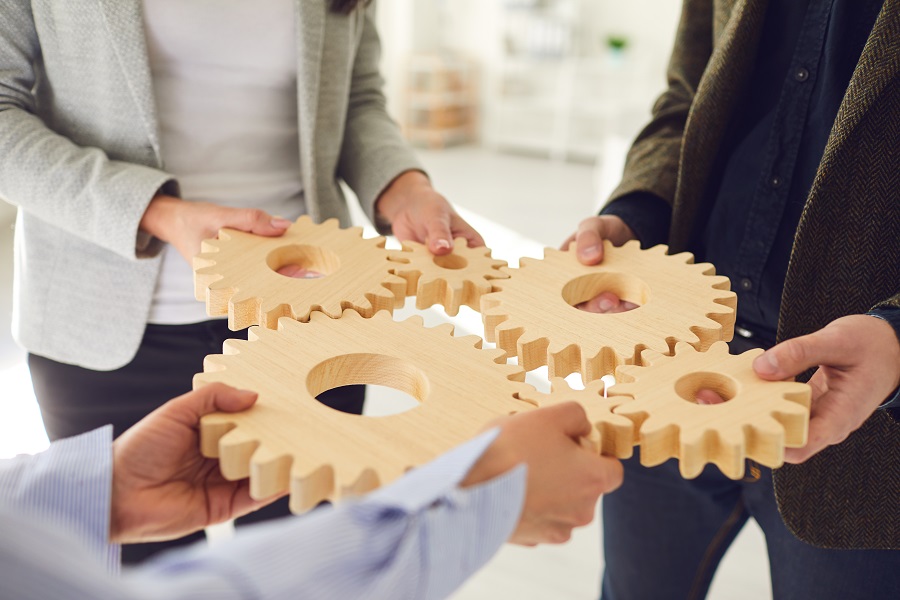… everyone can learn…
Complex organizations need structures in which teamwork is possible. We have concluded that successful collaboration, whether it takes place in agile teams or “normal” teams, requires some skills that employees need to build and develop to be successful in the long run.
We humans do have the essential ability to behave cooperatively with other people. I like to compare this topic with “talent”. There are people who have a talent for ball sports, for example. To become reasonable, you need a lot of practice and training. Talent alone is not enough. So what does it take to work well with others?
Clarity of purpose
Keeping an eye on the customer and clarifying the purpose of the task is necessary to deliver the right result that will benefit the customer. This starts with simple tasks and can be found again in “user stories” such as those used in SCRUM. Looking at the entire organization, successful cooperation has a lot to do with a common focus on the company’s goals, from which employees can derive the meaning of their work.
Agreed approaches
When working together with others, it is helpful to agree on a standard system to create a transparent procedure for everyone and to be able to integrate all participants. We recommend dealing more and more with iterative methods to manage the continually changing influences and the increasing complexity.
Reviewing
A team can grow if it develops its competencies. This works best through regular reflection cycles, in which the quality of the result on the one hand and the quality of the approach, on the other hand, are checked. We answer the questions:
- How satisfied are we/the customer with the final result?
- What was helpful?
- What caused difficulties?
In the end, the team members agree on which aspects they want to work specifically to improve their performance.
Feedback
The word feedback means to give feedback on observed behaviour (without the intention that the feedback giver changes the behaviour – in this case, we would speak of criticism). A feedback giver must be good at observing and listening and be able to give appropriate feedback on how the other person’s behaviour is received.
Strength awareness
A strength is a skill that I can use whenever I need it, in the “dose” in which it is helpful. People have different strengths. Successful teams consist of people with complementary strengths, which they use together to achieve their goals. Building on strength is usually much more effective than trying to lose supposed weaknesses.
Finally, a little question for reflection:
How much time do you invest in building exactly these strengths of cooperation in your team actively?
We believe that the productivity of a team is massively dependent on a team developing the ability to work together. By this, we do not mean having dinner together once a month or having a barbecue together. This is part of it, but only a small part of team development.
Building the ability to work together is only possible if teams learn together and experience how they can work together to become even better at completing the tasks they are given. The more independently a team can work, and the more self-organisation is required, the more important this factor is. We therefore strongly recommend that you devote sufficient time and also energy to your team and your ability to work together to remain competitive in the long term.
We enable people to succeed – together


Recent Comments